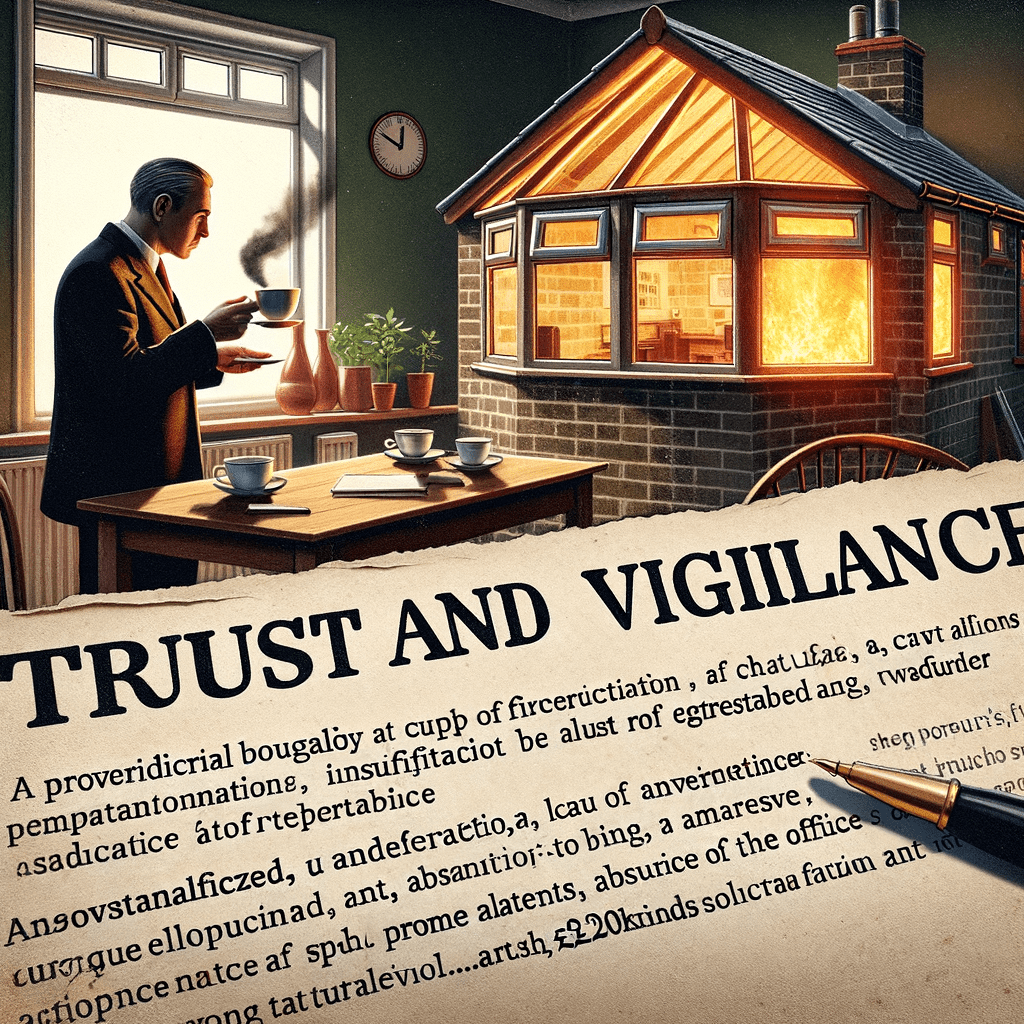Trust Your Gut: Navigating the Property Market with Caution and Confidence
The Importance of Trusting Your Instincts
When it comes to buying a property, your instincts can be your best ally. The property market is fraught with complexities, and while a cup of tea offered by a seller or agent might seem like a simple gesture of hospitality, it could also be a subtle tactic to sway your judgment. Always stay cautious and refuse if in doubt. This anecdote serves as a reminder that not everything is as it seems, and a healthy dose of scepticism can save you from potential pitfalls.
The Role of a Thorough Survey
Recently, I completed a survey for a client who was initially anxious about the necessity of the process. Her concerns were valid. The property in question was a bungalow with a converted loft, marketed as a two-bedroom conversion. However, upon inspection, it was clear that the conversion was far from standard. There was no compartmentation, inadequate insulation, no smoke alarms, and no egressable window. These issues were not just minor inconveniences but significant safety hazards.
Identifying Structural Issues
The first step in any property survey is to identify structural issues. In this case, the lack of compartmentation in the loft conversion was a glaring problem. Compartmentation is crucial in preventing the spread of fire, and its absence can be a deal-breaker. Additionally, inadequate insulation can lead to higher energy bills and an uncomfortable living environment. These are not issues that can be easily overlooked or fixed without considerable expense.
Safety Concerns
Safety should always be a top priority when purchasing a property. The absence of smoke alarms and egressable windows in the loft conversion posed serious risks. Smoke alarms are essential for early fire detection, and egressable windows provide a means of escape in case of an emergency. Without these safety features, the property was not fit for habitation, let alone being marketed as a two-bedroom home.
The Power of a Detailed Report
Armed with the facts from my detailed report, my client’s solicitor and the vendor’s solicitor backed my findings. The pushy, rude, and aggressive agent who had discouraged my client from getting a survey done had to revise the property listing immediately to avoid legal repercussions. The property was correctly listed as a one-bedroom with a study/office, and the price was reduced by £20,000.
Legal Implications
This case highlights the legal implications of misrepresenting a property. Agents and sellers have a duty to provide accurate information, and failure to do so can result in legal action. My report provided the necessary evidence to hold the agent accountable and ensure that the property was marketed accurately.
Financial Impact
The financial impact of a thorough survey cannot be overstated. In this instance, my client saved £20,000, which is a significant amount of money. This saving could be used for necessary repairs or improvements, making the property a more viable investment.
The Value of Professional Expertise
My client called to thank me, praising my excellent service and acknowledging that I am at the top of my game. While the appreciation is gratifying, it is a reminder that in this job, you can never rest on your laurels. The rules and regulations in the property market are always changing, and staying updated is crucial.
Continuous Learning
As a professional surveyor, continuous learning is part of the job. Keeping up with the latest building regulations, safety standards, and market trends ensures that I can provide the best service to my clients. This commitment to ongoing education is what sets a good surveyor apart from the rest.
Building Trust
Building trust with clients is essential. My client has already decided to have me do the survey for her next property, which is a testament to the trust and confidence she has in my expertise. This trust is built on a foundation of thoroughness, accuracy, and a commitment to safeguarding my clients’ investments.
Navigating the Property Market: A Step-by-Step Guide
Navigating the property market can be daunting, but with the right approach, you can make informed decisions and avoid potential pitfalls. Here is a step-by-step guide to help you through the process.
Step 1: Define Your Requirements
Before you start looking at properties, it’s essential to define your requirements. Consider factors such as location, budget, size, and type of property. Make a list of must-haves and nice-to-haves to help narrow down your options.
Step 2: Research the Market
Conduct thorough research on the property market in your desired area. Look at recent sales data, property prices, and market trends. This information will give you a better understanding of what to expect and help you make informed decisions.
Step 3: Get Pre-Approved for a Mortgage
Getting pre-approved for a mortgage will give you a clear idea of your budget and show sellers that you are a serious buyer.

